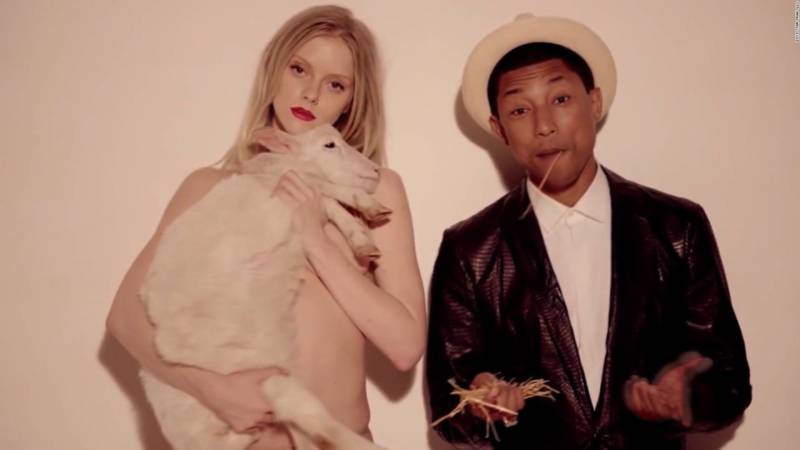Depending on your perspective, “Blurred Lines” was either the catchiest bop of Summer 2013, or a rage-inducing example of casual sexism and rape culture.
The lyrics of “Blurred Lines,” by Robin Thicke featuring Pharrell and T.I., were for many sexual assault survivors nothing less than triggering—thanks in particular to a refrain that included the words “I know you want it.” The first sound Pharrell even made on the track was a cat-called “Hey girl, come here!” done in a style familiar to every female human that has ever dealt with street harassment.
The accompanying video did not help matters. There were two versions released—one in which partially clothed models are objectified; another in which the same objectified women wear only flesh-colored panties. Both versions feature a scene in which Thicke’s penis size was described by, of all things, silver balloons.
Though an enormous hit at the time (“Blurred Lines” reached the top of the charts in countries around the globe, and is certified Diamond in the United States. having sold the equivalent of over 10 million copies), it has become somewhat of an albatross for everyone involved. Not just because of accusations of its misogyny, but also because in 2015, a jury found both Thicke and Pharrell guilty of copyright infringement due to the song’s resemblance to Marvin Gaye’s “Got to Give it Up.”


